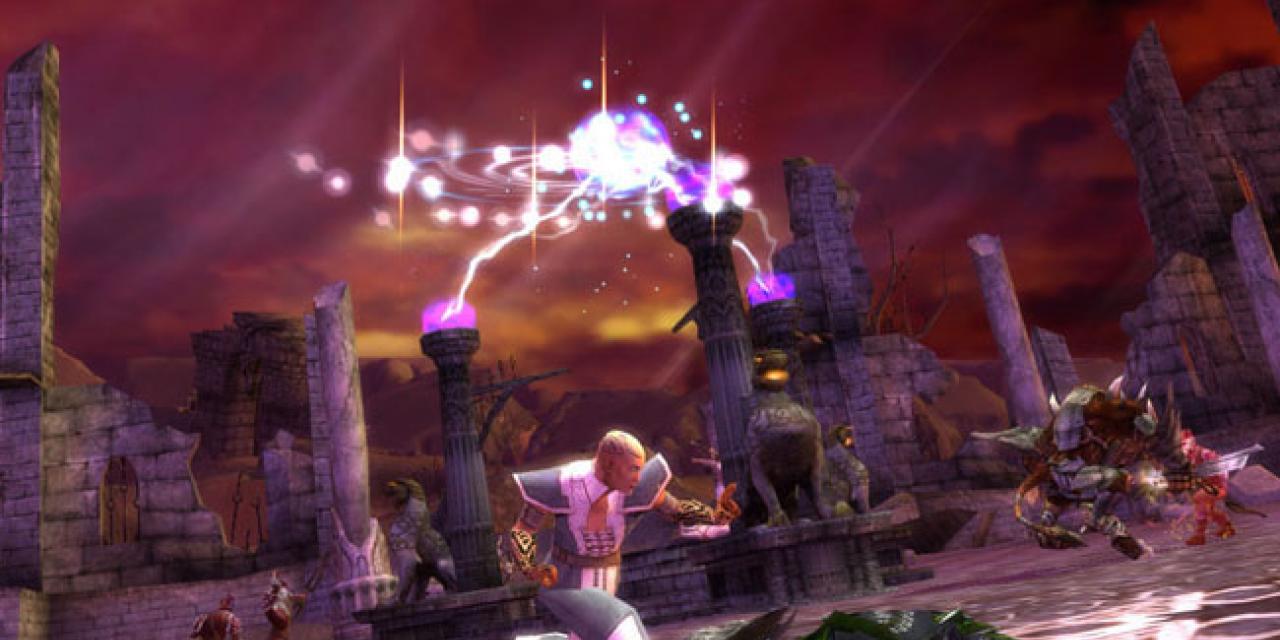
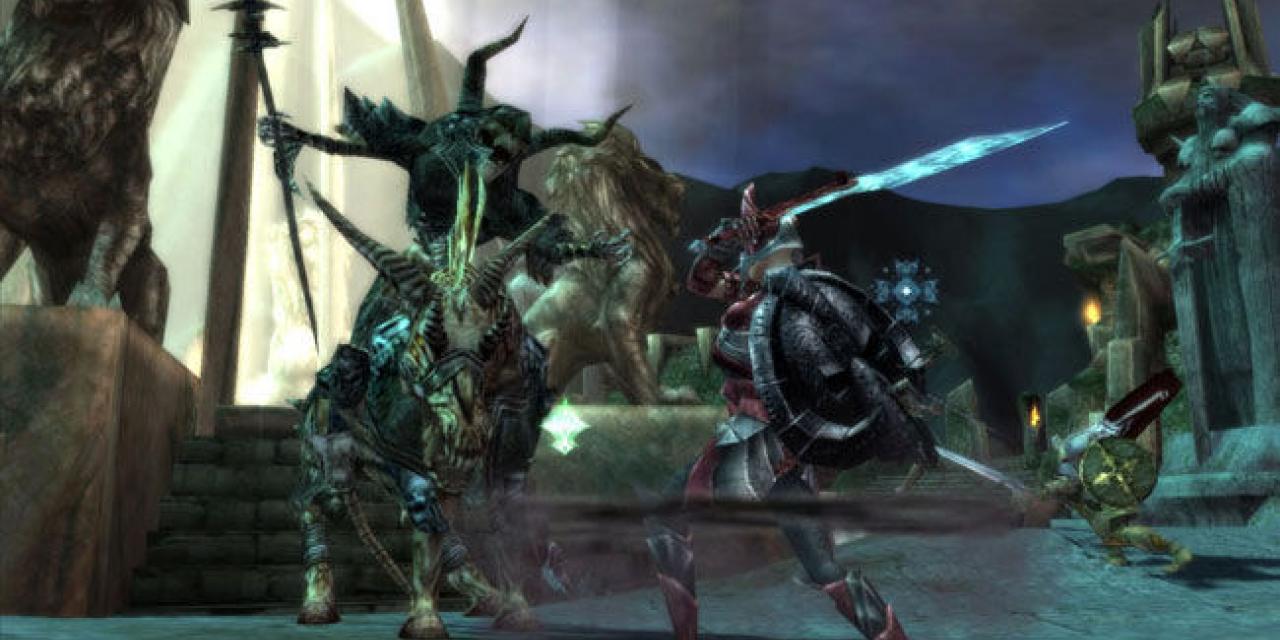
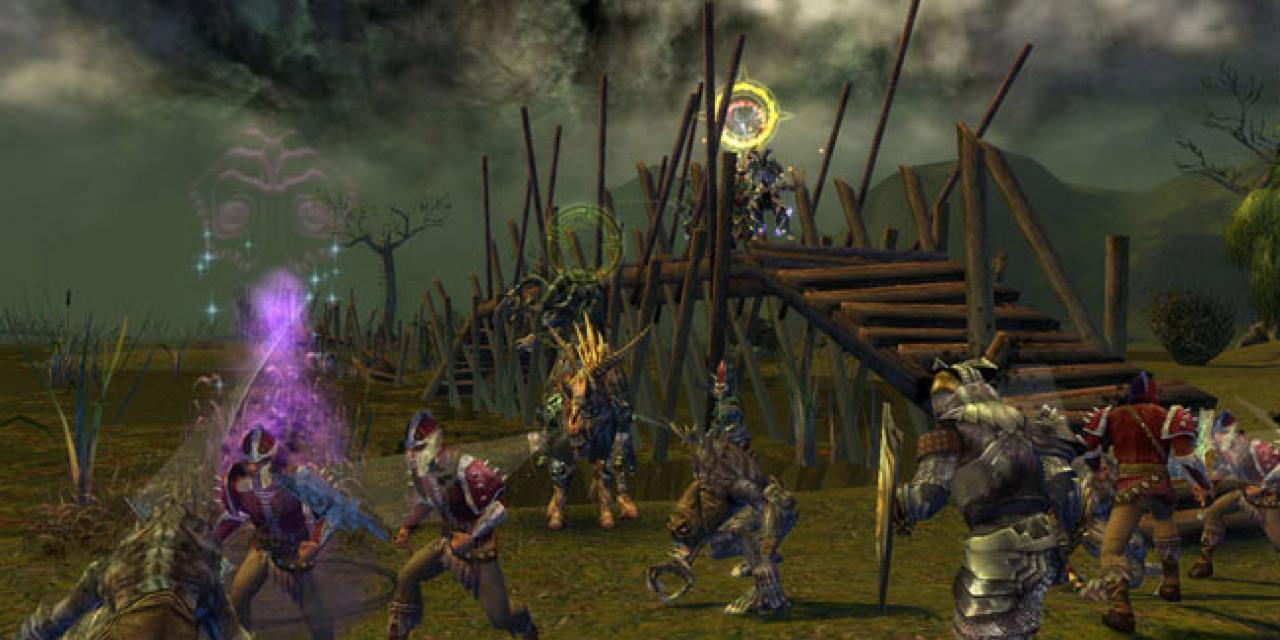
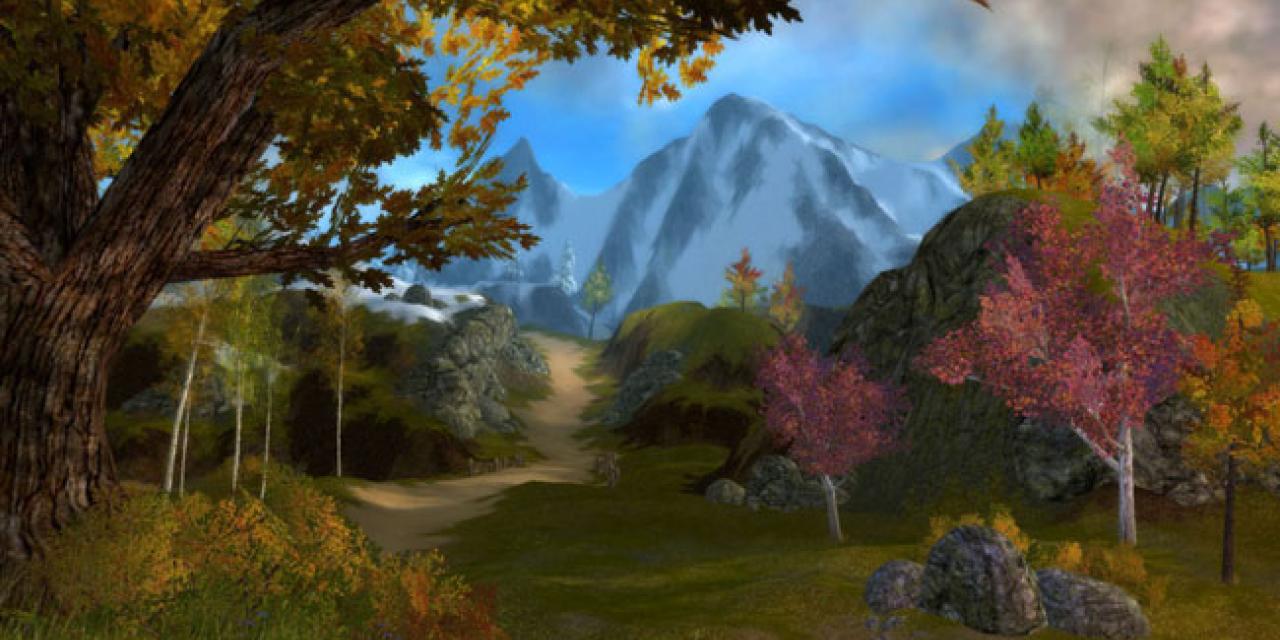
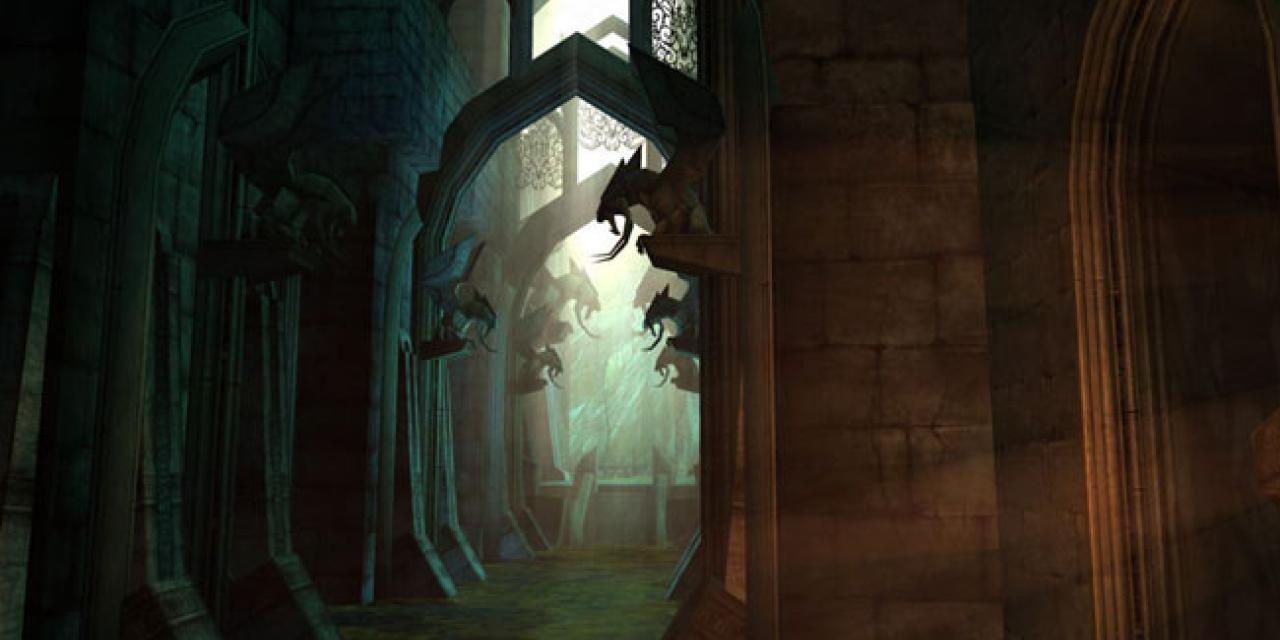
Guild Wars is a massively multiplayer online game based in the fantasy world of Ascelon. The player gets to choose from six different professions (Warrior, Ranger, Necromancer, Monk, Mesmer and Elementalist) to explore the huge world of Ascelon. Players will quickly be able to pick up a secondary profession to mix and match skills, creating a fantastic variety of gameplay, since the secondary profession can be just as powerful as the primary. One could spend hours wandering the landscape pre-sear (before a catastrophic attack) and take in the fantastic graphics this game has to offer. Move on to post-sear portion of the storyline, and the rest of the world opens up - and areas that were once familiar suddenly become very threatening. It takes a small bit of time to get used to some of the movement, especially since there is a notable lack of a "jump" function (so players will often have to take the long way around certain areas), but most difficulties are easily overcome.
Everything looks so calm...Every time the player steps out into the world, the game makes a dedicated copy for the player or the party. This effectively circumvents most problems that plague many other MMO titles, such as kill stealing, camping, or waiting for a mission goal to spawn. The world of Ascelon becomes the player's private playing ground, which is very impressive given the world's massive size. All creatures killed stay dead, and no one can randomly come around and steal loot. The missions are generally tailored so that they can be completed alone or with a group, although there are one of two missions that will require more than one player to complete, and players will most likely need some help in higher level missions. The downside to this is that being in your own private world means that there is no chance of bumping into strangers who might want to join up with you or give a last-minute rescue or healing when you are in danger. Luckily, the death penalty isn't bad. Players receive a temporary reduction in stats, which goes away the minute they go into a town or outpost. Towns and outposts are the only places where players openly congregate, and beings so, they tend to be very crowded. It can often be difficult to find specific players or people to join your party among the sea of people, but more on that in a bit.
The gameplay of Guild Wars is very easy. Specific professions give access to specific spells and skills which can be used in conjunction with one another. Since players can put two professions on their character, they are allowed an incredible amount of freedom to customize their character for different situations. Contacts are needed for missions, and they can sometimes reward players with new skills. Skills can also be purchased, but skill points need to be used, and every skill purchase costs one skill point more than the last skill that was purchased. Usually, it's much easier to pick up skills while on missions. Each profession has a number of different specializations which, when leveling, players can put points into. The Necromancer, for example, can specialize in Blood Magic (magic that requires some sacrifice of health), Death Magic, or Hexing - or they can increase the mana bonus they get when things around them die. Combine these possibilities with what a secondary profession might offer, and the player is faced with a long list of choices. Here's the catch: When entering the world or mission, players can only carry six skills with them. This puts extra emphasis on considering what the player needs when confronting specific missions or what roles he/she wants to play in a group.
When creating a character, Guild Wars gives you an option to select from creating a character designed for role-play in campaign mode, or a dedicated PvP character. If PvP is selected, a high level character is generated specifically for arena combat. There is are arenas located in the campaign, but it's great to have the option to dive right into a fight if you don't feel like adventuring. The trick is, most abilities, armors, and weapons are locked in PvP mode unless they are discovered in campaign mode. So, if players want to get an extra edge in the arena, they should make their way through the story mode. Arena combat is generally very fast paced and intense. The only problem is that there is no way to customize arena battles. Players can't choose exactly which team they wish to combat or which arena they want to face off in. Instead, they have to wait and hope that the arena system cycles them into the way that they want.
As the name suggests, Guild Wars puts strong emphasis on teaming up with other players. At low levels, players are restricted to small groups. As they grow in level, they will eventually be able to form very large ones to go on missions. As mentioned before, the only places players can congregate together are in towns or outposts. Moving from town-to-town is very easy. Players need only bring up the world map and click on marked areas for instant transport to any city or outpost they have discovered. Since these are the only public areas, they are often crowded with players looking to trade or team up for missions. The problem with this is that it is difficult to get a team together. There is no way to tell which people are looking for a team other than to scroll through a list of requests and player dialogue. After finding a person, it can be hard to find him or her among the crowded streets, since the only way to find someone specific who isn't on your friends list is to hold down a control key (which shows all names, even through objects) and try to spot a specific name among a sea of text. There is also no way to know which players have the same quests (other than talking to each other) to combine goals. There is also no way to select and see navigation markers for quests that belong to anyone except the leader. For a game that puts strong emphasis on cooperative play there are some significant barriers to overcome to create a team.
To prevent overcrowding, the game is divided into different districts, which equates to different servers on other MMO games. Players are automatically put into a district whenever they log on. What makes Guild Wars unique is that players can easily move from one district to another to join with friends. That means that players are no longer limited to having to select specific servers, then remind their friends to join the same one, or not play together. Another unique feature to the game is the ability to hire henchmen, computer controlled characters, to help fill out a team or provide assistance. While computer players can be useful, their limitations quickly become obvious. They can get stuck in certain areas of the map, and they generally lack the flexibility and adaptive ability of a real player.
...until you start to fight!Venturing out on missions with real players can have a few drawbacks as well. Only some areas have places where players can resurrect. If a player dies and no one else on the team put a resurrection skill on their action bar, then the dead player is stuck watching as the rest of the teammates continue along. Using the world map to return to a nearby town automatically kicks the player from the team. Also, it logging out is almost instantaneous, so it is easy for players to quit without warning if a battle doesn't seem to be going their way. Players who lose connection for one reason or another will have no chance to rejoin their party and continue a mission. This is the cost of having your own private world.
Still, Guild Wars is a game that can easily played and returned to. Exploring the vast, beautiful world is almost reason in itself to play. Finding the right combination of abilities and attributes to get through both the campaign and PvP arena is a strong draw, especially when there are so many to find and select from. The customization options are nearly endless, which complements some of the challenging missions very nicely. While the story can be a little hard to keep track of, which can be often the case in MMO games, the cut scenes marking milestones in the story are compelling. For those people who aren't so interested in story, the fact that they can jump right into PvP play is also a strong draw. Let's not forget the fact that there is no monthly fee required in order to play, making Ascelon a great place to revisit and Guild Wars a game that players can stick to for a very long time.
Reviewed by Steven Wong
